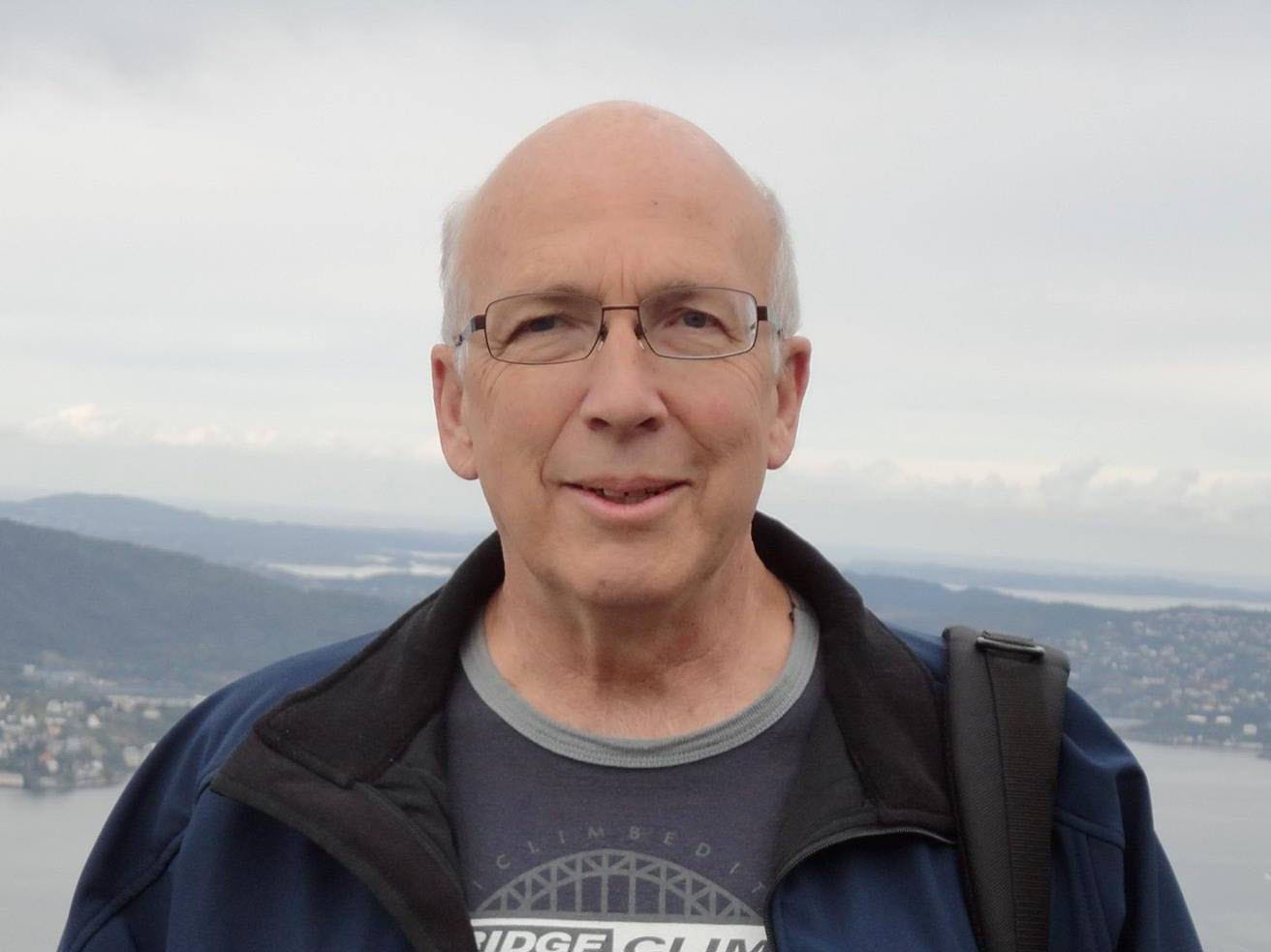When I was transitioning out of the Academy into the world of policy think tanks, I ran into Peter Stockland one afternoon. I could not pass up the opportunity to ask him what the art of writing good newspaper opinion columns was. His advice was as wise as it was easy to remember: “Don’t write about your tie. No one wants to read about your tie.” He meant that the writing should not be personal. He went on to tell me that years hence, when I developed an audience I might afford to write about my “tie,” and the readers might appreciate it. Stockland was the Editor of the Calgary Herald at the time if I recall correctly.
I don’t think I have yet arrived to that time, but what follows is in some ways about my tie, and it isn’t. News of the passing of Professor Roger Gibbins this week reminded me about my arrival in Calgary. Roger was the Head of the Department of Political Science, when I arrived on Campus on August 3, 1990, after 4 days on the road coming from Montreal. I met him on that day. He was a bit awkward around people at times, and a bit shy. He often didn’t know what to do with his hands, and in most pictures he held them in front of him, clutched sometimes. Yet, he never let any of that get in the way of being a considerate gentleman and an influential scholar (My friend, who also arrived on campus the same day I did, and who has more than earned writing about his ties, has recently written more substantively about Roger here).

Roger was very welcoming. I was never in one of Roger’s classes, but I learned a good deal just by watching him operate the department. Later, when I became a teaching academic myself and got to read most of his books, I wished I had had the sense to be in one of his classes, especially his class on federalism.
In the first year of my MA program, Peter Lougheed was a regular speaker in his class. It was the year in which the Meech Lake Accord had heated the country, the Mohawk Kahnawake Reserve in Oka had flared in rebellion, and Canadian federalism was in effervescence. I bumped into Lougheed in an elevator. He was going to speak to Roger’s class. A couple of years later, I met Joe Clark, possibly near the same elevator, coming to see Roger during the Charlottetown Accord constitutional rounds.
I remember my first hike in the Canadian Rockies in October of 1990. The Department had a visiting professor from Bavaria, Prof. Tilo Schabert, and graduate students were invited to go on a hike with a few faculty members and Dr. Schabert. One’s first hike in the Rockies is always memorable, but walking part of the way up a trail to a cirque near Lake Minnewanka and chatting with Roger is also memorable. He was interested in hearing about my experiences in Montreal as a refugee and how it all compared with my experiences in Alberta so far.
Roger was excellent at bringing people together. I think it was in the summer of 1992 that there was a faculty-grad students softball game. I don’t know that it was Roger’s idea to have it, but it certainly had his support. I later learned that he had actively leaned on some of his faculty colleagues to participate, who might otherwise not have come. Outside the academic experience itself, the game was one of the highlights of my years at the UC Department of Political Science.
For one, it was a lot of fun and it was remarkable to see many of the members of the department interacting with the students and among themselves. Some of the profs had not spoken to one another in a long time, and probably barely did after that day, but none of those famous departmental tensions seemed present that day. The game seemed to have melted them away. The game was followed by a summer BBQ at the house of one of the other profs in the department. It was good to see such fellowship and camaraderie.
The magic of the initial game was never reproduced in one or two subsequent attempts. At the end of the first game, pictures of the teams were taken. Huge copies were printed and hung on a wall in the Polisci departmental lounge for several years. The beaming smiles on everyone’s faces were a fleeting reminder of what had happened that day. In many ways, Roger made that possible.
Roger was good to me, as he was to so many others. One day not long after the start of my first semester in the program I learned from Valerie, his assistant, that Roger wanted to see me in his office. I was a bit worried about being called to the “principal’s office.” I had no idea what it was about. Little did I know that he was coming to my rescue.
When I arrived on campus I had met the ranking Middle East scholar on campus. My academic mentor back in Montreal, himself a Middle East scholar, recommended that I go meet his Calgary counterpart. The very day we met, the Calgary ME scholar asked me to do some research for him. It was a way to make a few dollars before the school year started. So, I did. I edited a book of essays, fact-checked a few essays he was sending out to publication, and got to know the Middle East section of the library very well.
A few months later, I came to recognise what looked like a pattern of exploitation that I had not seen before and also started to hear stories here and there. The ME scholar handed me two books and asked me to write a precis for each book, which I did. Both books were about Islamic political thought, so that was right up my alley. When I turned them in a few days later, my employing professor told me that I should have written them like book reviews. A precis is not a book review, but I guess he liked the precis enough that he now wanted me to write the book reviews for him. I declined and told him I was too busy with the school semester, which was true enough. That was in mid-September already, right into the school semester.
About a week later, Roger summoned me. He was very direct in ways that seemed uncharacteristic of him. He told me, ordered me pretty much, not to do more work for that person. He reminded me that my principal duty was my graduate work, and he was right about that.
It turns out that the ME scholar was in some trouble for plagiarizing materials from students, and this was not the first time that there had been allegations from serious students. After some looking into it, the Dean of Graduate Studies issued an interdiction for grad students to work with the man in question. Roger had wisely and quietly shielded me from what could have become more serious academic abuse. He did it without making himself look like the hero or making the bad guy the bad guy. I was always grateful to him.
During the Charlottetown Accords, a series of conferences across the country took place, seeking greater wisdom and input from Canadians. One such conference took place in Banff, my memory is a bit hazy about the context. Joe Clark was leading this charge, I think, and many of the professors and students from the PoliSci department were in attendance. The place was packed. Roger was never the first person to speak unless he was the host. He was a good listener. Toward the end of the proceedings, after a few great interventions and some not-so-good ones from various folks, he began by saying that he had three thoughts on the matter. The matter was Senate Reform.
He announced the first one and spoke for a good five minutes, then came the second one for what felt like a similar period. Packed in the two things there were hundreds of other things, it seemed. I remember listening attentively. I don’t remember the details of what he said but in many ways, it was a synthetic improvement on many of the things we had just heard at the time from opposing directions. Then came the third thing. He announced it and stopped. Full silence. I thought this was a great way to build drama. After the full two things, I thought the third thing would surely be brilliant. Then, with a smile on his face, he said: I thought I had three things to say, but I seem to have forgotten what the third thing was.
The room burst into laughter and he laughed right along with the rest of us. That moment was a summary of Roger. Brilliant, non-partisan, generous, articulate, and humble.
Roger wrote dozens of books, many of which remain influential to this day. He was a brilliant commentator. His academic ability was well recognised. He received the Order of Excellent of Alberta in 2013. As the head of the Department of Political Science at the University of Calgary, a position he held for several years, the department Anthony Parel built continued to flourish as one of the top-rated political science departments in Canada. He often seemed to have the perfectly right words to describe events in context in a single sentence. His mind could cut through a lot of fog.
Sometime at the turn of the millennium he left the university, where he had been for some 30 years, and went to direct the Canada West Foundation. The place has not been to the heights that Roger took it, and it all seems to be going in one direction today: decline. But under Roger, the place flourished, he attracted a few key former students and did some great work for the benefit of what some now call the New West. This region of the country is filled with promise and confidence not very visible in the rest of the country. Roger contributed to this reality.
Roger made his mark on Alberta. Rachel Notley tweeted in sympathy for his death in language almost as authentic as the one employed by the premier, who was a student in the department when Roger was Head. Roger was a consummate federalist, and few people in the country understood the Canadian West as well as he did, abstracted from political preferences and political ideologies. His mark is in many small nooks and crannies of Canada’s federal institutions, and in the positive example he set for many of his students.
In addition to his numerous achievements, Gibbins remained a dedicated educator. He was known for his engaging teaching style and his commitment to his students. Many of his former students have gone on to have successful careers in academe, politics, and public service, a testament to his influence as a mentor and educator. Several of his graduate students have gone to teach in places as far back as Australia. In that way, Roger’s legacy lives on as well.
May he rest in peace.


Share Your Thoughts